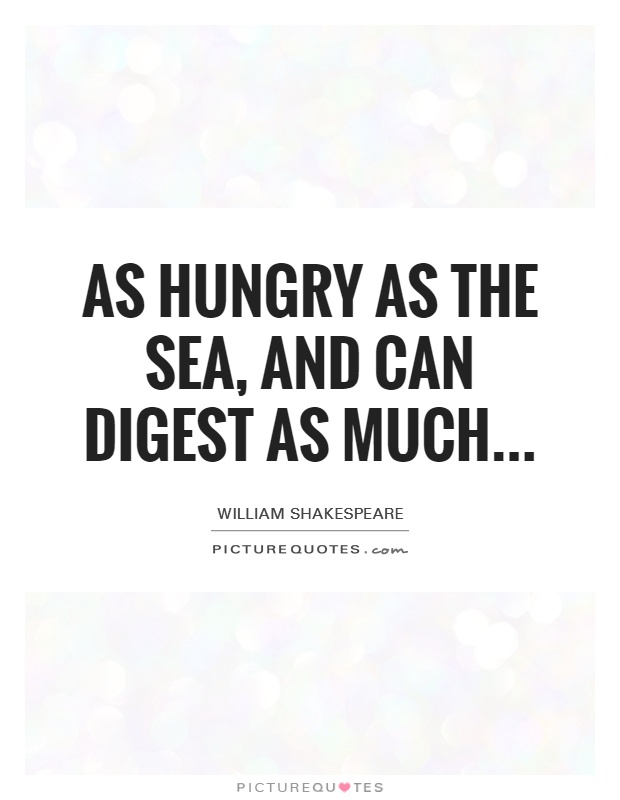As hungry as the Sea, and can digest as much

As hungry as the Sea, and can digest as much
The phrase "As hungry as the Sea, and can digest as much" is a powerful metaphor used by William Shakespeare in his play "Antony and Cleopatra". In this context, the sea represents a voracious appetite or desire that can never be fully satisfied. Just as the sea is constantly consuming and digesting everything in its path, so too are the characters in the play driven by insatiable desires and ambitions.The character of Cleopatra embodies this idea of insatiable hunger and boundless appetite. She is a complex and multifaceted character who is constantly seeking new experiences and pleasures. Cleopatra's desires are as vast and deep as the sea itself, and she is willing to go to great lengths to satisfy them. Like the sea, she is both alluring and dangerous, capable of both great beauty and great destruction.
Similarly, the character of Antony is also driven by his own desires and ambitions. He is a powerful and charismatic leader who is torn between his love for Cleopatra and his duty to Rome. Antony's hunger for power and glory is as vast as the sea, and he is willing to risk everything to achieve his goals. However, like the sea, Antony's desires are ultimately insatiable, and he is unable to find true satisfaction in his conquests.
Shakespeare uses the metaphor of the sea to highlight the destructive and consuming nature of human desires. Just as the sea can be both beautiful and terrifying, so too can our own desires lead us to both great heights and great depths. The characters in "Antony and Cleopatra" are driven by their own hunger and ambition, but ultimately find themselves consumed by their own desires.
Overall, the phrase "As hungry as the Sea, and can digest as much" serves as a powerful reminder of the dangers of unchecked ambition and desire. Shakespeare's use of this metaphor in "Antony and Cleopatra" highlights the complex and often destructive nature of human desires, and serves as a cautionary tale about the consequences of giving in to our most primal urges.












 Friendship Quotes
Friendship Quotes Love Quotes
Love Quotes Life Quotes
Life Quotes Funny Quotes
Funny Quotes Motivational Quotes
Motivational Quotes Inspirational Quotes
Inspirational Quotes